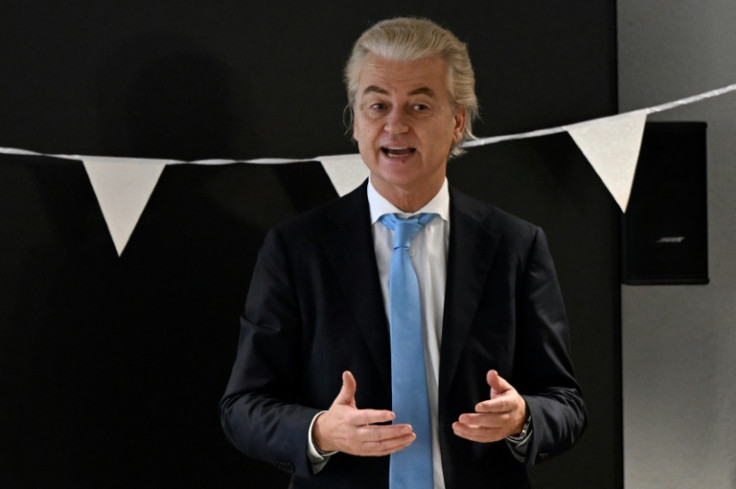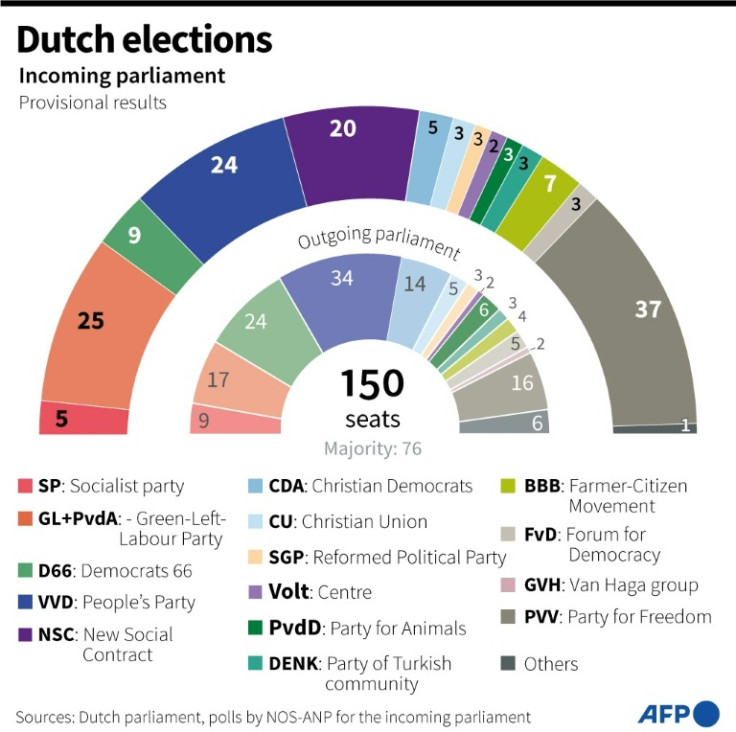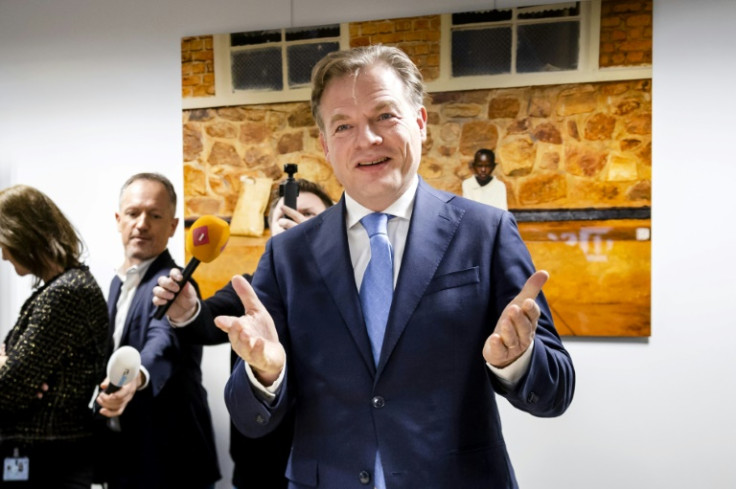Dutch Coalition Horse-trading Starts As Wilders Eyes Power

After his shock election win, far-right Dutch firebrand Geert Wilders on Friday kicked off the formal process of building a government coalition, battling to convince reluctant rivals to serve under him as premier.
The Netherlands is under scrutiny in Europe and further afield after Wilders's PVV Freedom Party touched off a political earthquake by comfortably winning Wednesday's vote.
Wilders dialled down his more excessive anti-Islam, anti-immigrant rhetoric during the campaign but the PVV manifesto calls for a ban on mosques and the Koran, plus a referendum on leaving the EU.
For the first time since election night, Wilders and other party leaders will huddle in parliament to begin the horse-trading -- a process typically taking several months.
The first task is to appoint a "scout" who will shuttle between the parties, feeling out who is prepared to work with whom and crunching the numbers of the complex electoral maths.
A stable coalition needs 76 seats in the 150-seat parliament but the fragmented Dutch political system means often four or even more parties are needed to reach that magic number.
Wilders is nearly halfway there, winning an extraordinary 37 seats, according to near-complete results. As the top party, the PVV gets first crack at forming a government.
His preferred coalition is with the BBB farmers party, the New Social Contract (NSC) of anti-corruption champion Pieter Omtzigt, and the centre-right VVD -- for 13 years the ruling party of Mark Rutte.
It seems virtually certain the BBB will get on board, bringing its seven seats. Omtzigt, who has 20 seats, is playing hard to get, but has voiced a willingness to talk.
This places the spotlight firmly on the VVD and their Turkish-born leader Dilan Yesilgoz.
Voters handed the party a humiliating rebuke on Wednesday, but their 24 seats would still get Wilders over the line.
"Can they work together with him? That will be the crucial question here," Diederick van Wijk, research fellow at Clingendael Institute, told AFP.
Wilders has already signalled a willingness to compromise on some of his more hardline views.
He has repeatedly stressed he wanted to be "prime minister for all Dutch regardless of their religion, sexuality, colour, gender or whatever."
"When you are prime minister, you have a different role than when you are leader of the opposition," said Wilders.
Yesilgoz broke a longstanding taboo by saying Wilders could serve in her cabinet if she won the election -- which many analysts believe opened the door to his victory.
But she has been tight-lipped about whether this arrangement would work with Wilders as PM.
She ruled it out during the campaign but later said voters had handed politicians a "new reality."
The question is, can Wilders be Dutch prime minister, given past incendiary comments, including calling Moroccans "scum" and whipping up a crowd calling for "fewer, fewer" of them in the country?
"With Wilders as prime minister, the Netherlands has an impossible situation internationally," Sarah de Lange, Professor of Political Pluralism at the University of Amsterdam, told AFP.
She could even imagine a PVV-led coalition appointing a complete outsider as prime minister, leaving Wilders to focus on controlling his swelling ranks of MPs.
Opposition to Wilders is spilling out into the streets. Rallies took place Thursday in Utrecht and Amsterdam, with another expected in the capital Friday.
Dutch Muslim community leaders have voiced fear and anxiety at the thought of a prime minister Wilders but some Muslims seem ready to give him a chance.
In an Amsterdam cafe, Burak Cen, a 40-year-old taxi driver said he didn't vote, but he would have voted for Wilders.
"I think he deserves a chance," he told AFP.
"I honestly think he's just trying to drum up votes with his propaganda about mosques and Muslims. But otherwise what he says about the Dutch and poverty is right," added Cen.



© Copyright AFP 2025. All rights reserved.





















